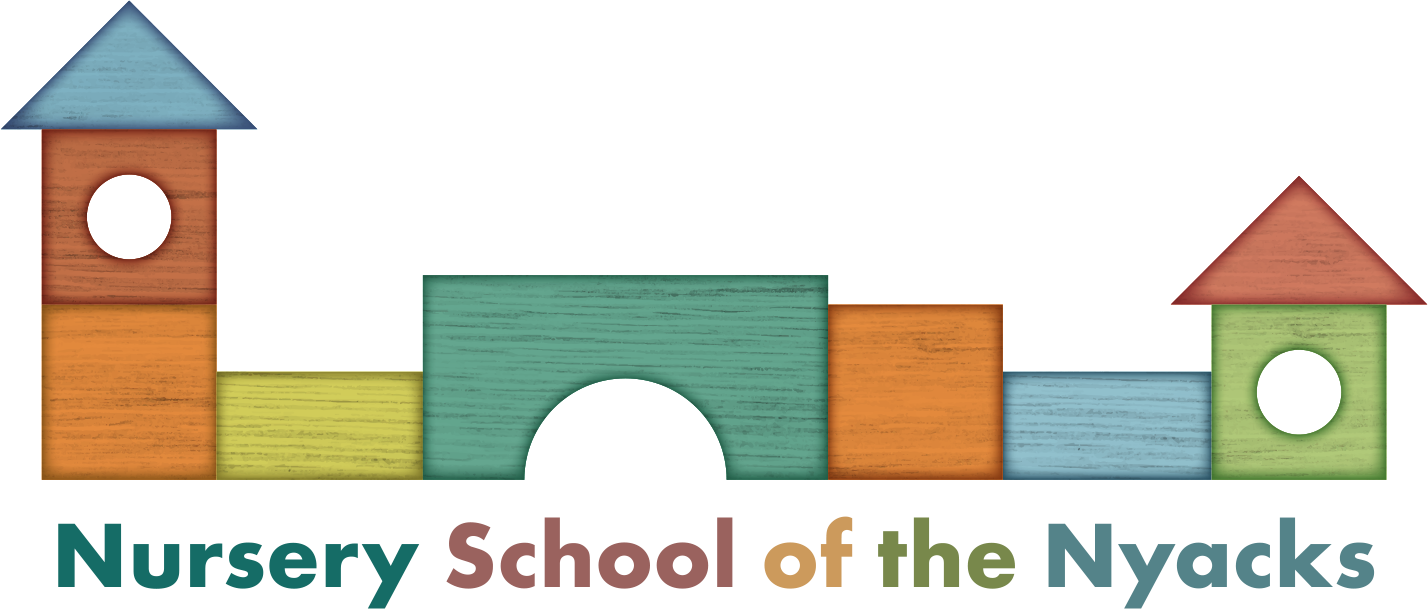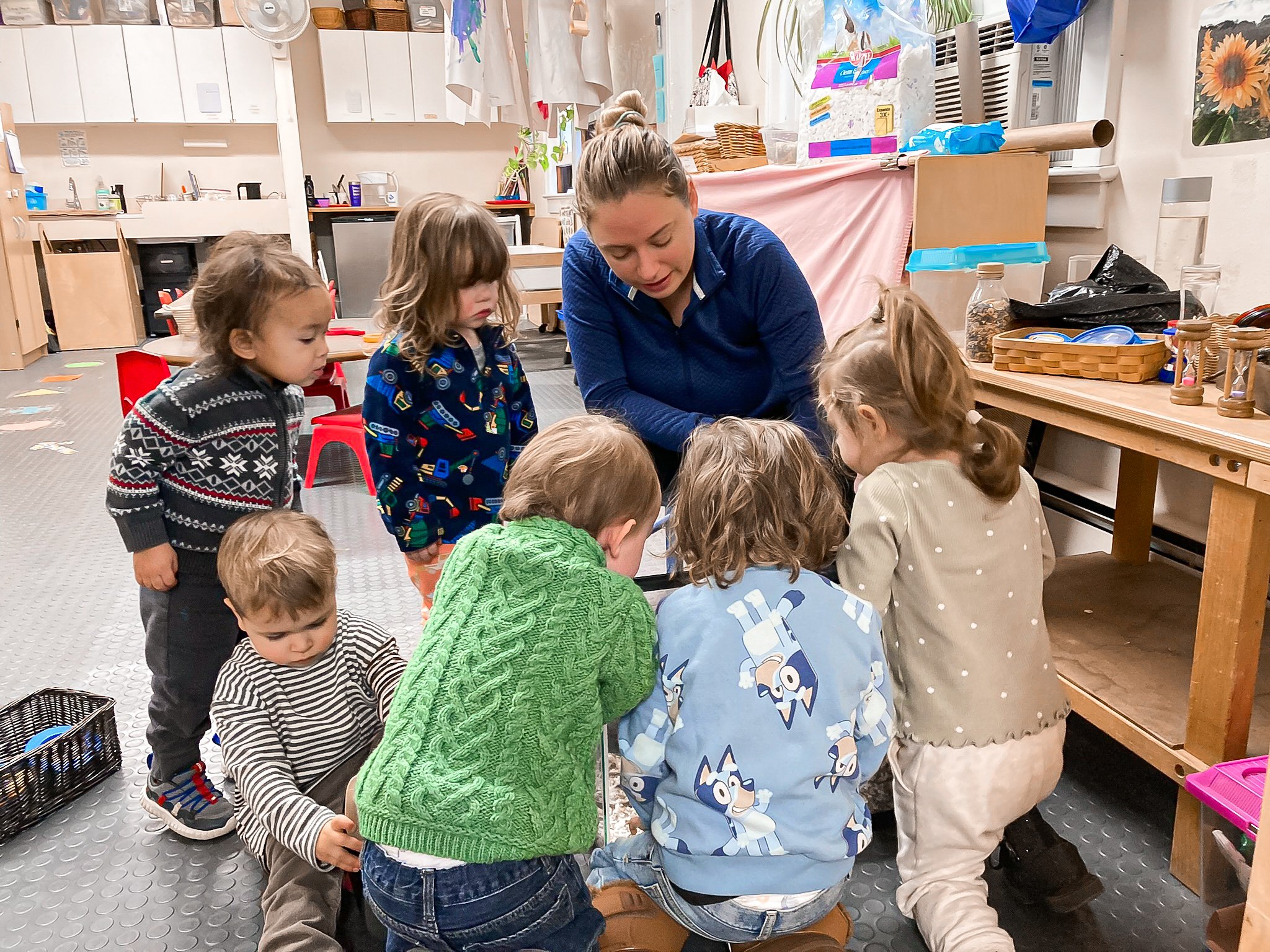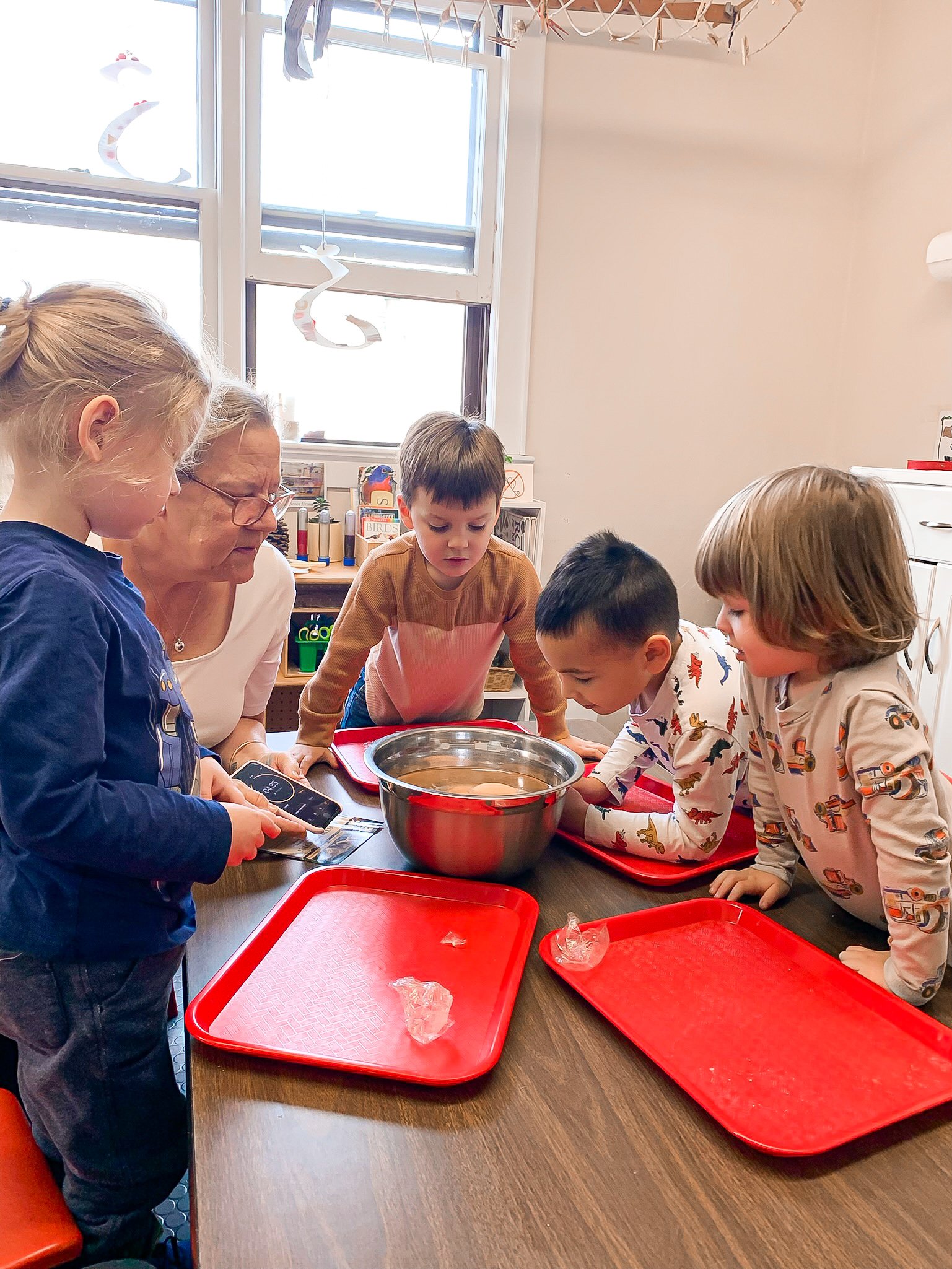
About Us
Our Story
NSN began through the cooperative efforts of local parents who felt the need for an additional choice of nursery schools in the community. A school that would pay close attention to each child's individual developmental needs and progress.
As a parent-developed and -operated school, families are integrally involved in all aspects of the school's functioning. Nursery School of the Nyacks (NSN) promotes an environment where children are encouraged to bring their imaginations, enthusiasm for discovery, and excitement for learning.
Within a safe and nurturing co-op environment, our children learn through play. They try out roles, act out "what-ifs," express ideas, try out solutions to problems, and simply imagine. Our parents get to participate in their children's learning experience first-hand, while becoming part of, and learning from, a supportive community of involved parents and the professional, experienced teaching staff.
Our Philosophy
The children are taught how to think, not what to think.
The role of the teacher is one of facilitator or guide who brings expertise and knowledge of child development into the classroom. Social development is central to the NSN philosophy.
The school partners with parents to support each child's unique development. Nursery school is often a child's first link to a larger community. Experienced and sensitive teachers create a safe haven at NSN for children to take both small and large steps. Children are assisted in negotiating play with others, taking turns, listening, and honoring their classmates' need for individual exploration.
They receive focused support and guidance on specific social issues such as separation and conflict resolution. Sharing experiences and feelings are an integral part of the curriculum.
Children's ideas and interests are often used as a springboard for activities in the classroom. NSN provides developmentally appropriate programs for pre-schoolers.
Our Program
We value the whole child by using a curriculum that is emergent rather than pre-established. Through constant interaction, the teachers help each child meet her potential and grow socially, emotionally, physically, linguistically, and intellectually.
Young children learn through direct experience and need to be allowed actively to explore and manipulate materials in their environment. The materials in our classroom are carefully selected based on the learning opportunities they provide and constitute a group of Activity Centers. These centers are arranged to encourage free exploration and a clear view of all that is available in the classroom so that the child has the opportunity to make choices and participate in independent learning.
Children have their own preferred modes of learning. Some children respond best to visual cues, others to tactile experiences. We respect and teach to each child's strengths while providing the chance to experience the world in multiple ways.
Activity Centers
Dramatic Play Center.
Young children love to dress up and pretend. Family and home are very important to a young child. By imitating, reviewing, pretending and acting out experiences (past and present) young children further their understanding of the world around them. As young children become more actively involved in complex make-believe, they further develop their language because of the necessity to listen and respond to each other. Dramatic play is one of the precursors to literacy
Sand & Water Center
Children need to feel that they can control and manage their world. By playing with sand and water, children can safely and successfully experiment without the fear of making mistakes, because there is no incorrect way for them to use the open-ended materials provided. Sensory materials are often a favorite of very young children and help them understand their environment through touch and observation. Hence, the beginnings of science basics.
Art Center
Children are encouraged to explore materials in their own way. This exploration offers them the opportunity for personal observation and self-awareness. They experience art as a pleasurable outlet and use it to encounter and represent feelings and events. Our focus is on the process rather than the final product, allowing children to enjoy the sensory experience instead of being overly-concerned with how something might look.
Puzzels & Manipulatives Center.
Manipulatives and puzzles are structured learning materials that have fixed size, color, shape, weight, and texture. They challenge children's perceptual-motor skills and contribute to their ability to think and make order. Open-ended manipulatives allow children to be creative as they arrange and rearrange colors, sizes and shapes. Puzzles with fixed solutions may attract children who shy away from the non-structured materials, providing the opportunity to explore, correct, test and retest.
Reading & Writing Center.
Through handling books, a child's natural curiosity helps him discover that books are fun, exciting, and give information. A child becomes aware that symbols in books represent things and ideas. Reading with a teacher, the child learns to associate letter names with letter sounds, learns the concept of left and right, and comes to understand that drawings are associated with printed words.
Blocks Center.
Building with blocks involves all areas of learning. Blocks encourage children to form a community, to play cooperatively, and to problem solve. Through play, they increase physical development as well as a sense of measurement, spatial relations, and differentiation of various shapes and sizes.
Science & Cooking Center.
Cooking and observational science experiments engage all of a child's senses. The child is encouraged to touch, smell, manipulate, taste (when appropriate), compare, and note similarities and differences. Cooking, planting, caring for our pets, and observing seasonal and daily weather conditions let the children experience and acknowledge change. Children gain experience with measuring, comparing shapes and sizes, estimating, and the concepts of more or less. These are the beginning math and science concepts which provide a strong foundation for future learning.
Music & Movement Center.
Children need ample opportunities to experiment with what their bodies can do. This center encourages movement through the use of both musical instruments and large hollow blocks.

Parent Testimonials
“I chose Nursery School of the Nyacks because when I first visited the school, I fell in love with the teachers. Six years (and 3 kids) later, I feel the same way.
My children have been privileged to have such patient, nurturing teachers who have encouraged them every step of the way."
— Cathy H. Parent
“I love NSN. The teachers are so kind, and they really care about your kid(s). The parents are so dedicated to the school and make you feel welcome. I am so glad that my kids are in a safe environment and they are having a great time.”
- Maria R. Parent
"It has been such a joy to watch how a community of invested parents, a thoughtfully designed curriculum, incredibly skilled and engaging teachers and quality time with her peers has helped my reserved child's confidence grow inside and out of the NSN classroom."
— Andy P. Parent
“When my daughter was ready for nursery school, I knew that the hardest part of watching her go would be trusting her teachers with access to her heart and mind. For that reason, choosing NSN was an important and well-researched decision."
— Leanne P-R. Parent







